
纵观历史, 正在朝着两性平等的进展一直是一个漫长而艰苦的战斗战斗. 今天, 妇女在新兴市场和世界各地的权利的侵犯仍然普遍存在. It exists in many forms and disguises ranging from female infanticide, 新娘燃烧和对妇女的暴力冲突, 到剥夺妇女的平等生育决策系统, 受教育的机会, 同工同酬, equal legal rights and equal political voices. There remains much work to end the devastating consequences of female subordination. 性别不平等在道德上是错误的, 糟糕的经济和对企业不利. 在光明的一面, 得益于技术, millions of voices that once could not be heard now have access to the global community. Never in the history of the world has the opportunity to accelerate the process for the empowerment of girls and women been greater. 今年早些时候,在第四绿邓普顿学院新兴市场研讨会在牛津大学, 在各种形式的性别歧视和不平等的国际机构分享了他们的个人判断和意见, 包括乔治·阿莱恩爵士, 大卫·沃森爵士, 州长玛德琳库宁, 梅格·琼斯, 琳达·斯科特, 简·麦考利夫, 苏曼贝里, 滇戈麦斯, 玛丽·伊丽莎白王, 杰尼克卢格曼和伊恩·斯科特. 双方同意继续在全球对话与我在我的系列 “女”. 在新兴市场已经取得了男女平等最显著的进步? 我们能从中学到什么显著的成功或失败的例子中性别不平等在世界各地? What role can international lenders and western customers of emerging nations’ 商品和服务在加速过程中发挥? To explore answers to these and other questions for Part 2 的 “女,” 我跟网速慢贝里连接, 首席经济学家壳牌国际 (海牙, 荷兰), 杰尼克卢格曼, 社会性别与发展的世界银行集团董事, 和伊恩·斯科特, 新兴市场研讨会执行董事.
伊恩·斯科特: In which emerging markets has the most significant progress been made in gender equality and what have been the key elements in that process?
伊恩·斯科特: All emerging markets are committed to the precepts of gender equality embraced by the Universal Declaration of Human Rights, 千年发展目标和消除对妇女一切形式歧视公约. 大多数人都明白,性别不平等浪费人力资本, 牺牲经济增长, 剥夺了鲜明的声音政治制度, 否认儿童, 年轻人和家庭健康的发展机构, 受过教育的母亲和延续的性别不平等的后果从一代到下一个. 然而,也有打哈欠的政策之间的差距, 立法行动和现实世界的行为. 积极的变化,部分证据是证据表明,女性是弱势群体对政府的不公平的竞争领域回火, 企业和民间社会和人的潜力继续被浪费的程度,是不符合人权, 人类安全, 可持续的经济增长, 社会凝聚力和长远来看,政治稳定.
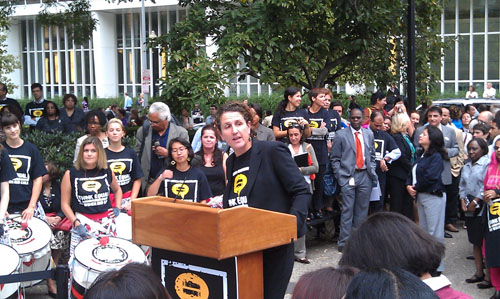
你在世界各地见过哪个例子显著的成功或失败的?
伊恩·斯科特: 由世界经济论坛年度报告中使用的有关性别平等的多重标准, 世界银行和联合国, 显示菲律宾执行远远比许多富裕国家更好地 (美国和英国列入) 而其他新兴市场固定到位,有些问题表现出的趋势. 菲律宾是只有八个国家之一 (而在亚洲地区唯一的国家) 已经关闭了教育和卫生,但哥伦比亚的差距, 匈牙利, 马来西亚, 约旦, 和摩洛哥最近失地. 其中中东和北非新兴市场 – 这个区域是在性别平等排行榜底部 – 摩洛哥是表现最差的之一,显示 “显著回归”. 土耳其和巴基斯坦, 尽管相对良好的政治参与评分, 都在经济参与方面的十大表现最差和机会女性中. 巴基斯坦在教育和卫生性能仍然在底部10. 拉美在教育和卫生封闭缺口, 但经济参与, 以及政治权力仍然很低两个新兴市场特别成问题: in the past year, 哥伦比亚从55下降到80,在整个世界经济论坛的排名是由于女性的收入和巴西的相对下降, 虽然上升, 124仍然是世界上工资平等 (出 134 国家报告). 中国和印度是有问题. 中国倒数第二排的健康和生存措施, 这主要是因为女婴. 印度在大型新兴市场中表现的教育非常差排名最低, 经济参与, 和, 与中国的, 是对健康和生存的措施底部. 最近, 印度是由路透基金会列为五大最严重的国家之一,对妇女合法权益, with injustices from female infanticide to human trafficking to bride burning haunting other headlines. Thus despite strong economic performance in recent years, both India and China were identified by a recent Goldman Sachs analysis as needing to focus on women’s rights in order to sustain growth and maintain stability. Other nations contain still different paradoxes. South Africa ranks 14th on the World Economic Forum’s list–above both the US and the UK–primarily because of better political and economic participation. But the rate of violence against women in South Africa is among the highest in the world: rape and domestic violence are endemic. 因此, the health and survival measure for South Africa is poor and, in the United Nations Gender Inequality Report, both the maternal mortality rate and the adolescent fertility rate remain very high. Emerging markets in Eastern and Central Europe generally have relatively high levels of education and labour participation, as well as relatively lower fertility rates and higher GDP per capita. 然而, several nations, including Poland, 俄罗斯, and the Czech Republic have shown minuscule improvements on the World Economic Forum’s composite measures since 2006 and Hungary has declined. 间 2010 和 2011, the Czech Republic dropped ten places in the overall rankings, due to widening wage gaps, in spite of its top ranking in educational attainment.
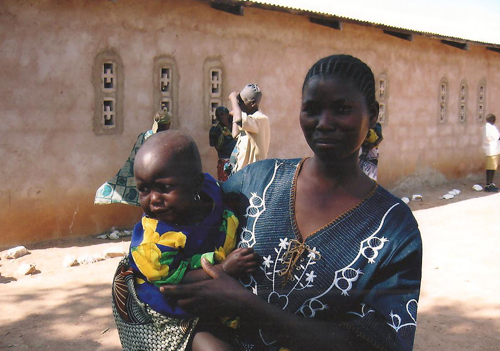
杰尼克卢格曼: What role can international lenders and western customers of emerging nations’ goods and services play in accelerating the process to end gender inequality? What examples of successful actions have you seen? What kind of coordination have you seen among governments and key lenders and customers to effect change?
杰尼克卢格曼: Gender gaps remain large – not only in terms of economic opportunities, but such other key dimensions as participation in decision-making and freedom from violence. These were documented in our 2012 World Development Report. 世界银行和其他纠正这些差距,加快实现两性平等的进展中发挥重要作用; economic growth alone won’t suffice. We work with governments and partners to build knowledge about what works and doesn’t work – for example to enable female entrepreneurs to be successful. We provide financing support (some $29 billion of World Bank lending in fiscal year 2012 was gender informed). We support legal and institutional reforms. And we can help heighten the focus on results on the ground. Examples of successful actions can be found here, 在 www.worldbank.org/gender One example of success is the Burundi Health Sector Development Support Project, a national results-based financing program that has helped to improve maternal health. Results in the first year included increases in the number of health facility based births by 25 百分比; in the number of prenatal consultations by 20 百分比; and in the provision of family planning services obtained through health facilities by 27 百分比. Another case of successful partnerships to effect change is the Economic Empowerment of Adolescent Girls and Young Women project in Liberia, supported by the World Bank. The project provides a combination of classroom training (including life skills and business skills) and job placement support. The results included a 50 percent increase in employment and a 115 percent increase in average weekly income for project participants, compared to those who did not participate.
苏曼贝里: What role can western governments play in accelerating the steps that need to be taken by emerging market states? What blunt actions are considered feasible? Which western governments have taken a leadership role in this area?
苏曼贝里: I believe strongly that it is counterproductive for rich countries to impose social conditionality on poor countries. This risks being seen as neo-colonialism and hypocritical given the turbulent interaction between rich and poor countries over the last two hundred years. A slightly more acceptable path is naming and shaming, but selectivity on the part of rich countries in avoiding the issue with socially conservative, resource-rich partners also strains credibility. The biggest contribution that rich countries can make in this area is to support credible independent research on the enormous benefits that female empowerment and equality of opportunity have conferred where these have been embraced, while not minimizing the human rights dimension of such equality. Ultimately this is a journey that each society needs to travel on by itself: after all it is only in the last forty years that the richest countries in the world have themselves seen the light.
欲了解更多信息: http://ems.gtc.ox.ac.uk/
更多女性系列文章: 部分 1, 部分 3, 部分 4 – 埃及
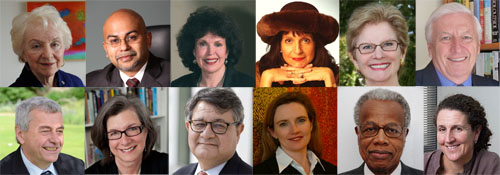
Photos courtesy of Jeni Klugman, World Bank Group, 和C. M. 鲁宾.
在全球寻找教育, 和我一样,全球知名的思想领袖,包括迈克尔·巴伯爵士 (英国), 何. 迈克尔座 (美国), 何. 莱昂特司特因 (美国), 克莱克里斯坦森教授 (美国), 何. 琳达·达林 - 哈蒙德 (美国), 何. 马达夫查万 (印度), 迈克尔·富兰教授 (加拿大), 霍华德·加德纳教授 (美国), 安迪·哈格里夫斯教授 (美国), 伊冯娜赫尔曼教授 (荷兰), 克里斯汀Helstad教授 (挪威), 让·亨德里克森 (美国), 玫瑰Hipkins教授 (新西兰), 科妮莉亚Hoogland教授 (加拿大), 这位杰夫·约翰逊 (加拿大), 太太. 尚塔尔考夫曼 (比利时), 何. Eija Kauppinen (芬兰), 国务秘书塔皮奥Kosunen (芬兰), 多米尼克·拉方丹教授 (比利时), 休·劳德教授 (英国), 本·莱文教授 (加拿大), 主肯麦克唐纳 (英国), 巴里McGaw教授 (澳大利亚), 希夫纳达尔 (印度), Ř教授. 纳塔拉詹 (印度), 何. 吴PAK (新加坡), 何. 丹尼斯教皇 (美国), 斯瑞达拉贾戈帕兰 (印度), 何. 黛安·拉维奇 (美国), 理查德·威尔逊·赖利 (美国), 肯·罗宾逊爵士 (英国), 帕西SAHLBERG教授 (芬兰), 安德烈亚斯·施莱歇 (PISA, 经合组织), 何. 安东尼·塞尔顿 (英国), 何. 大卫·谢弗 (美国), 何. 基尔斯滕都沉浸式 (挪威), 总理斯蒂芬·SPAHN (美国), 伊夫Theze (公立中学法语美国), 查尔斯Ungerleider教授 (加拿大), 托尼·瓦格纳教授 (美国), 大卫·沃森爵士 (英国), 迪伦Wiliam教授 (英国), 何. 马克沃莫尔德 (英国), 西奥Wubbels教授 (荷兰), 迈克尔·杨教授 (英国), 和张民选教授 (中国) 因为他们探索所有国家今天面临的大画面的教育问题. 全球搜索教育社区页面
ç. M. 鲁宾是两个广为传诵的在线系列,她接受了笔者 2011 厄普顿·辛克莱奖, “全球搜索教育” 和 “我们将如何阅读?” 她也是三本畅销书, 其中 真正的爱丽丝梦游仙境.


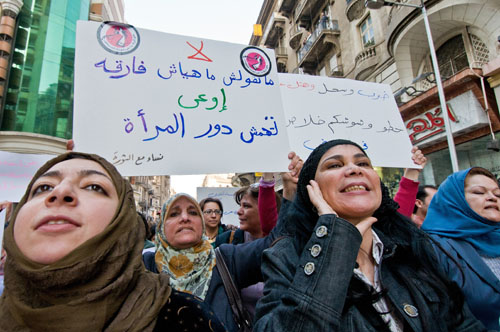

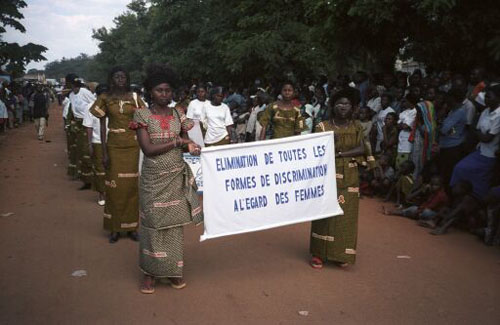

最新评论